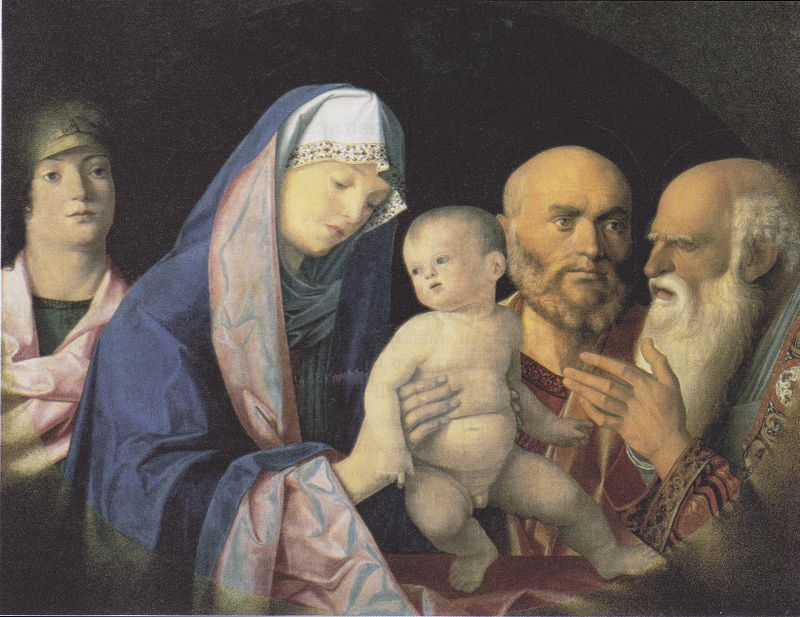
It’s no secret that many Christians (and for that matter, many non-Christians) are disturbed by the political goings-on here in America. To say that a Trump-Clinton race presents us with two unsavory options is egregious understatement. And on a wide slew of social issues (like abortion, gay marriage, torture, war, poverty, immigration, racial issues, etc., etc., etc.), it’s becoming increasingly rare to see or hear Christ-like laws or policy positions. It’s easy to get disillusioned, even to the point of despair.
Part of the problem is with us, that we’re ignoring what the Scriptures have to say. The Psalmist warns us against the lure of secular salvation (Psalm 146:3-9):
Put not your trust in princes, in a son of man, in whom there is no help. When his breath departs he returns to his earth; on that very day his plans perish. Happy is he whose help is the God of Jacob, whose hope is in the Lord his God, who made heaven and earth, the sea, and all that is in them; who keeps faith for ever; who executes justice for the oppressed; who gives food to the hungry. The Lord sets the prisoners free; the Lord opens the eyes of the blind. The Lord lifts up those who are bowed down; the Lord loves the righteous. The Lord watches over the sojourners, he upholds the widow and the fatherless; but the way of the wicked he brings to ruin.
We don’t seem to believe this. We keep imagining that we can achieve a Christian nation apart from prayer and continual interior conversion by simply voting the right way. (To be sure, voting in a way consistent with Christianity is important; if you’re reading this as saying otherwise, you’re misreading). And we keep falling on our faces.
But the other part of the problem is that God seems to be silent in the face of a rising tide of evil and inhumanity. And for many people reading this right now, this apparent divine silence isn’t limited to the public or political sphere. Maybe you’ve been praying for clarity on something, or praying for God’s assistance, and clarity and help just don’t seem to be on their way. We pray “O Come, O Come, Emmanuel,” or “Maranatha!” (Come, Lord!) but He doesn’t seem to be in any hurry to arrive.
There are two Biblical examples that I think are worth careful consideration in this context. The first, in the realm of waiting for the Lord in a political context, is from Judith 8. I’ve written on it before, so let me just say a few words: the Israelites are under siege and quickly running out of food and water. After 34 days, the people want to surrender to their pagan adversaries, even though they know it will result in the destruction of the Holy of Holies and other religious sites. The elders compromise, stalling the people by deciding to give God five more days. Judith responds to this by condemning both the people and the elders, since both are trying to force God onto a human timetable (significantly, 40 is the Jewish number of preparation, and the elders were trying to force God to act by day 39). We would do well to listen to her message on waiting on God’s schedule for salvation (Judith 8:11-13):
“Listen to me, rulers of the people of Bethulia! What you have said to the people today is not right; you have even sworn and pronounced this oath between God and you, promising to surrender the city to our enemies unless the Lord turns and helps us within so many days. Who are you, that have put God to the test this day, and are setting yourselves up in the place of God among the sons of men? You are putting the Lord Almighty to the test—but you will never know anything! […] For if he does not choose to help us within these five days, he has power to protect us within any time he pleases, or even to destroy us in the presence of our enemies.”
As I’ve said, I have said more on this before, at the link. So I want to turn to the other Biblical example, that of Simeon and Anna. Because this gets more to the personal waiting for Jesus: waiting for Him to reveal Himself more, or to give us greater clarity, etc.
The scene I have in mind is from Luke 2, in which Jesus is presented in the Temple. This trip leads to the Holy Family running into two fascinating characters. The first is Simeon (Luke 2:25-32):
Now there was a man in Jerusalem, whose name was Simeon, and this man was righteous and devout, looking for the consolation of Israel, and the Holy Spirit was upon him. And it had been revealed to him by the Holy Spirit that he should not see death before he had seen the Lord’s Christ. And inspired by the Spirit he came into the temple; and when the parents brought in the child Jesus, to do for him according to the custom of the law, he took him up in his arms and blessed God and said, “Lord, now lettest thou thy servant depart in peace, according to thy word; for mine eyes have seen thy salvation which thou hast prepared in the presence of all peoples, a light for revelation to the Gentiles, and for glory to thy people Israel.”
The second is Anna (Luke 2:36-38):
And there was a prophetess, Anna, the daughter of Phanuel, of the tribe of Asher; she was of a great age, having lived with her husband seven years from her virginity, and as a widow till she was eighty-four. She did not depart from the temple, worshiping with fasting and prayer night and day. And coming up at that very hour she gave thanks to God, and spoke of him to all who were looking for the redemption of Jerusalem.
It’s easy to read through this passage without paying serious thought to the figures of either Anna or Simeon, but pause for a moment. Simeon is promised by God that he will see the salvation of Israel before he dies. And so he’s waiting… and watching. We aren’t told how long, but the impression is that it’s been a long time. Methodius of Olympus (d. 311 A.D.) referred to Simeon’s Messianic hope as “extending the limits of life, and putting off the debt of death,” and Simeon’s prayer is a sort of sigh of relief: he’s seen the Christ, and now he’s finally ready to die. But he’s a righteous man, and he never loses hope. He just keeps waiting for the Lord, watching for Him, and listening to the promptings of the Holy Spirit. Eventually, when he’s near death’s doorstep, this faithfulness finally pays off in an enormous way: he gets to meet the infant Jesus Christ in the Flesh.
The same is true for Anna. She’s a prophetess, but she’s also a widow. For seven brief years from in her youth, she was married. For decades afterwards, she was a widow. Like Simeon, she lived in expectant hope of the Messiah. Rather than lamenting her dashed vocational hopes, she’s committed herself to a life of fasting, prayer, and Temple worship. And like Simeon, this faithfulness pays off. As I far as I know, Anna is the first evangelist mentioned in the Bible: she sees Jesus, and then goes out and speaks of Him to all who were awaiting the redemption of Israel. That’s a pretty fascinating detail, given that she’s a seemingly random octogenarian prophetess never mentioned before or after this passage.
The message in all three of these cases – Judith, Simeon, and Anna – is the same: when God doesn’t act according to our timetables, it’s easy to lose heart. But Scripture has another message: “Wait for the Lord; be strong, and let your heart take courage; yea, wait for the Lord!” (Psalm 27:14).

Reflecting on the Feast of the Presentation of the Lord/the Purification of Mary/Candlemas a few years ago, I realized something very significant about Anna. No matter how you date the birth of Christ (0, 6 BC, or 8 BC), if she was 84 years old, not departing from the Temple and praying day and night, then she may have been present/in the area at Pompey’s Siege of Jerusalem in 63 BC. She would have heard from the people living in the area at the time (if not experiencing it directly) of Pompey conquering the city and going into the Holy of Holies. A foreign general came into the very presence of God, and (unlike Heliodorus in 2 Maccabees 3) he walked out as if nothing had happened. It would have definitely seemed as though God had completely abandoned His people. Yet somehow, she holds on to faith, praying day and night in the Temple, expectantly waiting for God to make good on His promises. And He did.
Always a powerful message, Joe, and uplifting as well.